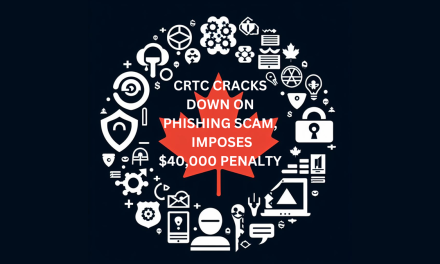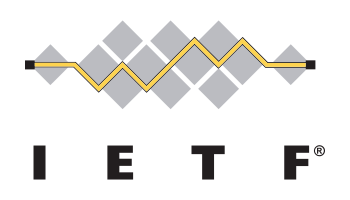Debates of the Senate (Hansard)
2nd Session, 40th Parliament,
Volume 146, Issue 83
Tuesday, December 15, 2009
Electronic Commerce Protection Bill
Second Reading—Debate Continued
On the Order:
Resuming debate on the motion of the Honourable Senator Oliver, seconded by the Honourable Senator Di Nino, for the second reading of Bill C-27, An Act to promote the efficiency and adaptability of the Canadian economy by regulating certain activities that discourage reliance on electronic means of carrying out commercial activities, and to amend the Canadian Radio-television and Telecommunications Commission Act, the Competition Act, the Personal Information Protection and Electronic Documents Act and the Telecommunications Act.
Hon. Tommy Banks: Honourable senators, even though I have never been in their position, I think I understand the frustration that is sometimes experienced by police officers and other officers of the Crown in enforcing legislation. I know that they intend to do good when they are performing their duties, but it is a question of how we go about it. There is no doubt that this legislation is urgently needed in order to do exactly what it says it will, and I will vote for this bill in principle.
However, as with Bill C-6, there is a question in my mind about how we go about it. Senator Andreychuk referred to this earlier when she was talking about finding that magic balance between the interests of the state and the interests of individuals. Where the fulcrum is placed on that seesaw determines in what kind of country we live. There are countries in which the weight is way over on the side of the interests of the state, which override and sometimes trample on the interests of individuals, and we know of those places. I presume that there must be some place in the world where the interests of individuals trample the interests of the state, although I do not know where that is.
We in this country have always prided ourselves on finding the right place to put that fulcrum and the basis of that fulcrum is the Constitution and the Charter of Rights. We work very hard to ensure that it is placed where there is a reasonable balance, given the circumstances, between the interests of the state, that is, all of us, and the interests of individuals.
I will vote in favour of this bill at second reading because the principle is right and I want it to be sent to committee. However, I again want to point out, as I did with Bill C-6 at second reading, that the committee that studies it, which I presume will be the Transport Committee, should address. I commend senators' attention to page 21 of Bill C-27, which deals with spam.
On page 21, clause 19(1) says:
On an ex parte application, a justice of the peace may issue a warrant authorizing a person who is designated for the purpose of this section . . .
I presume that is designated by the minister.
We expect that police officers can get warrants to go into people's houses, and under Bill C-6, we now expect inspectors to be able to do that also. We know that Fisheries officers, game wardens and certain other people can as well. Those are people who we presume, by virtue of their title and appellation, have some knowledge, experience and training with respect to exercising constabulary powers. This is a constabulary power, but the bill just says a "person who is designated for the purpose of this section" can be authorized to get a warrant to go into anyone's house. This does not refer to a police officer, a peace officer, a game warden, a Fisheries officer or anyone with experience, but just a person — a telephone operator, a plumber or any person without designation.
It goes on to say that that person can ask to obtain from a justice a warrant, "to enter a place if the justice is satisfied by information on oath that," — and then we see the conditions for the issuance of a warrant to go into a house.
I draw to your attention that there is nothing in this clause that talks about a reasonable suspicion that something wrong is being done in that house. There is no suggestion that this person has to satisfy the justice that he or she thinks that there is something in that house that is in contravention of this act or some act, or that breaks some law or that violates something. It is just for the purpose of entry into a place that is necessary to verify compliance with this act. The person says to the justice, "I want to go into that house to see whether there is compliance with this act." He or she need not think there is not; he or she needs simply to want to have a look to determine whether any of sections 6 to 9 have been contravened. They need not think that any of sections 6 to 9 may have been contravened and reveal why they think so. They need only to want to go into that house and check whether those sections have been contravened, regardless of what else they might find. This is fishing. This is a legalized fishing expedition.
For that reason, as I said with respect to Bill C-6, which was the same except that this is more egregious, if we were to pass this bill, which is urgently necessary, without amending this clause of the bill, it will find its way to a court, and a court will say that this is contrary to the charter and the Constitution.
I call that to the attention of senators who will serve on the committee to which this bill will be sent. I hope they will pay particular attention to that clause.
The Hon. the Speaker: Are honourable senators ready for the question?
An Hon. Senator: Question.
The Hon. the Speaker: It was moved by the Honourable Senator Oliver, seconded by the Honourable Senator Di Nino, that Bill C-27 be read the second time.
Is it your pleasure, honourable senators, to adopt the motion?
(Motion agreed to and bill read second time.)
Referred to Committee
The Hon. the Speaker: Honourable senators, when shall this bill be read the third time?
(On motion of Senator Comeau, bill referred to the Standing Senate Committee on Transport and Communications.)


















